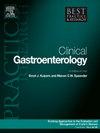Reaching the therapeutic ceiling in IBD: Can Advanced Combination Treatment (ACT) offer a solution?
IF 4
3区 医学
Q2 GASTROENTEROLOGY & HEPATOLOGY
Best Practice & Research Clinical Gastroenterology
Pub Date : 2025-08-01
DOI:10.1016/j.bpg.2025.101981
引用次数: 0
Abstract
The term Advanced Combination Treatment (ACT) involves the combination of at least two biologics or the use of a biologic with a small molecule drug, each with different mechanisms of action. This narrative review evaluates the current evidence supporting ACT in inflammatory bowel disease (IBD), focusing on preclinical studies, real-world evidence, and randomized controlled trials. A systematic review of randomized controlled trials has concluded that ACT significantly improves clinical outcomes, without significant safety concerns in patient with IBD. However, variability in trial designs and the lack of standardized outcome measures have led to initiatives aimed at mitigating these issues through a clear expert consensus. While the evidence for ACT in IBD is compelling, substantial challenges remain in standardizing treatment protocols and ensuring long-term safety. In the meantime, the use of ACT in clinical practice remains off-label and requires careful consideration of patient-specific factors. Future clinical trials should consider robust biomarkers for patient selection and leverage mechanistic insights to select combination components.
达到IBD治疗上限:高级联合治疗(ACT)能否提供解决方案?
高级联合治疗(ACT)一词包括至少两种生物制剂的联合或一种生物制剂与一种小分子药物的结合,每种生物制剂具有不同的作用机制。这篇叙述性综述评估了目前支持ACT治疗炎症性肠病(IBD)的证据,重点是临床前研究、真实世界证据和随机对照试验。一项对随机对照试验的系统评价得出结论,ACT显著改善了IBD患者的临床结果,没有明显的安全性问题。然而,试验设计的可变性和缺乏标准化的结果测量导致了旨在通过明确的专家共识减轻这些问题的倡议。尽管ACT治疗IBD的证据令人信服,但在标准化治疗方案和确保长期安全性方面仍存在重大挑战。与此同时,ACT在临床实践中的使用仍然是标签外的,需要仔细考虑患者的具体因素。未来的临床试验应考虑在患者选择中使用可靠的生物标志物,并利用机理来选择组合成分。
本文章由计算机程序翻译,如有差异,请以英文原文为准。
求助全文
约1分钟内获得全文
求助全文
来源期刊
CiteScore
5.50
自引率
0.00%
发文量
23
审稿时长
69 days
期刊介绍:
Each topic-based issue of Best Practice & Research Clinical Gastroenterology will provide a comprehensive review of current clinical practice and thinking within the specialty of gastroenterology.

 求助内容:
求助内容: 应助结果提醒方式:
应助结果提醒方式:


